Cooling DJ Equipment And Booth Ventilation 101
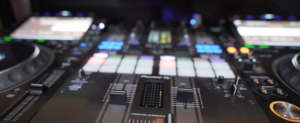 DJ equipment, such as booths, mixers, turntables, and amplifiers, relies heavily on electronics, and like most electronic devices, these components generate significant amounts of heat when in use. DJs often perform for hours in high-energy environments, such as clubs, festivals, or events, where their equipment is pushed to its limits. Excessive heat can damage sensitive components, reduce performance, and shorten the lifespan of equipment. Therefore, managing the temperature of the gear is essential for both performance and longevity.
DJ equipment, such as booths, mixers, turntables, and amplifiers, relies heavily on electronics, and like most electronic devices, these components generate significant amounts of heat when in use. DJs often perform for hours in high-energy environments, such as clubs, festivals, or events, where their equipment is pushed to its limits. Excessive heat can damage sensitive components, reduce performance, and shorten the lifespan of equipment. Therefore, managing the temperature of the gear is essential for both performance and longevity.
Culprit Of Heat Buildup
The primary reason DJ equipment produces heat is the continuous operation of its electronic circuits. Amplifiers, for instance, convert electrical energy into sound energy, a process that inherently produces heat. Similarly, other components such as mixers and controllers use microprocessors and circuitry that generate heat when they are running, especially when the equipment is performing high-demand tasks like processing multiple audio signals or controlling light shows simultaneously. The more powerful the equipment, the more heat it tends to produce, creating an environment where heat management becomes critical.
How To Maintain Optimal Equipment
To maintain optimal performance and prevent overheating, DJs and venues take several precautions. One of the most common methods is using active and passive cooling systems. Active cooling includes the use of fans or air conditioning to circulate air around the equipment and reduce the ambient temperature. In many DJ booths, fans are positioned either inside the equipment or nearby to ensure air movement. These fans help dissipate the heat by drawing in cooler air and pushing out the hot air created by the electronics. In addition to fans, passive cooling methods such as heat sinks or ventilation systems built into the equipment can help dissipate heat away from sensitive components.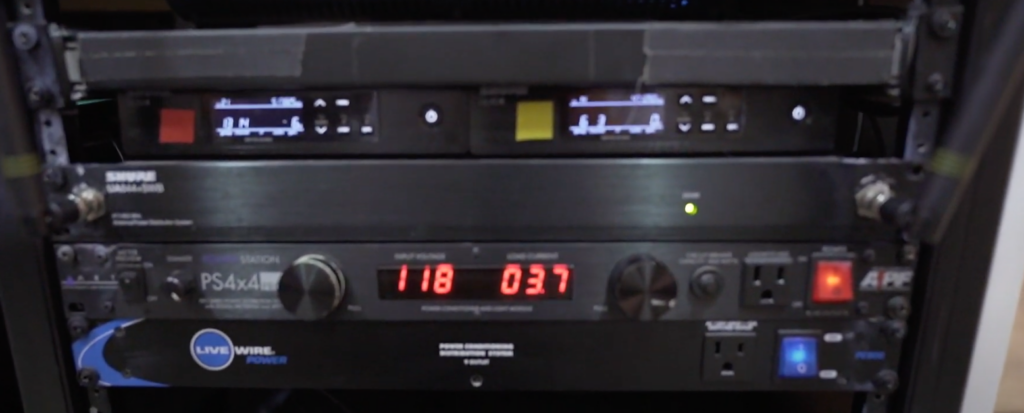
Cooling Large Equipment
However, in cases of extreme heat buildup, especially during long sets or outdoor performances, DJs may need additional measures. Portable coolers from Coolers On Sale can be used strategically to maintain a manageable temperature around the equipment. These coolers are designed to reduce the ambient temperature and can be placed near or around the equipment to provide direct cooling. Some DJs use small, battery-operated coolers that circulate cool air in the booth, helping to keep the temperature stable. Larger venues may even invest in air conditioning units or portable cooling systems that ensure a consistent, cool environment for both the performers and the equipment.
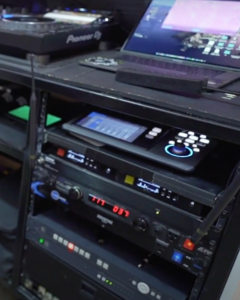 It’s also important to consider the environment in which the DJ equipment is used. Venues with poor ventilation or those in hot climates might require additional measures to manage heat. For example, in outdoor festivals, some DJs use dedicated cooling tents with air conditioning units to protect their equipment from the harsh heat of the sun. These tents create a controlled environment where the temperature remains manageable, ensuring the longevity of the gear.
It’s also important to consider the environment in which the DJ equipment is used. Venues with poor ventilation or those in hot climates might require additional measures to manage heat. For example, in outdoor festivals, some DJs use dedicated cooling tents with air conditioning units to protect their equipment from the harsh heat of the sun. These tents create a controlled environment where the temperature remains manageable, ensuring the longevity of the gear.
The heat generated by DJ equipment is a natural consequence of its electronic components working at high capacity. Managing this heat is essential to ensure the equipment runs smoothly and lasts longer. Active cooling systems, passive methods like heat sinks, and additional measures like portable coolers are all ways DJs and venues maintain a safe temperature for their gear. By taking these precautions, DJs can focus on their performance without worrying about equipment failure due to overheating.
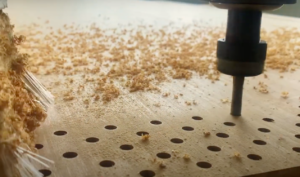 Some of the most common instruments made from bamboo include flutes, xylophones, and stringed instruments. The bamboo flute, often associated with Eastern music, is a classic example of how bamboo can be used to create an instrument with a beautiful, mellow sound. In Asia, instruments like the shakuhachi (Japanese flute), the dizi (Chinese flute), and the Bansuri (Indian flute) all rely on bamboo for their construction. The natural hollowness of bamboo tubes allows air to pass through with a resonating quality, giving these flutes their characteristic soft yet bright tone. Bamboo is also used in percussion instruments like the angklung, a traditional Indonesian instrument made from bamboo tubes that produce a melodic ringing sound when shaken. Additionally, bamboo is used in stringed instruments like the “bamboo guitar,” which has a distinctive sound, rich in warmth and depth.
Some of the most common instruments made from bamboo include flutes, xylophones, and stringed instruments. The bamboo flute, often associated with Eastern music, is a classic example of how bamboo can be used to create an instrument with a beautiful, mellow sound. In Asia, instruments like the shakuhachi (Japanese flute), the dizi (Chinese flute), and the Bansuri (Indian flute) all rely on bamboo for their construction. The natural hollowness of bamboo tubes allows air to pass through with a resonating quality, giving these flutes their characteristic soft yet bright tone. Bamboo is also used in percussion instruments like the angklung, a traditional Indonesian instrument made from bamboo tubes that produce a melodic ringing sound when shaken. Additionally, bamboo is used in stringed instruments like the “bamboo guitar,” which has a distinctive sound, rich in warmth and depth.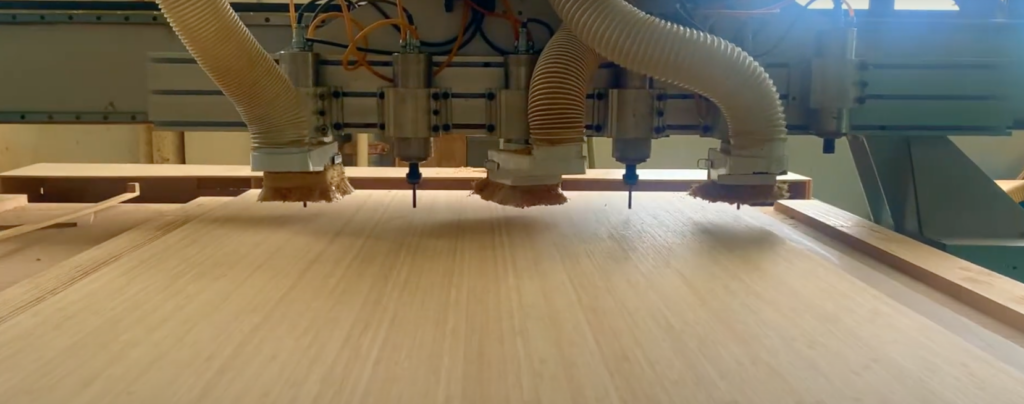
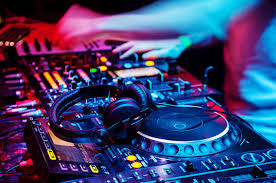 Arizona is a place that people most often associate with the desert. Temperatures can climb to extreme heights and the image that is pictured in a person’s mind is one of dry, brown, nothing for miles and miles. However, Arizona is also home to Phoenix, Tucson, Sedona, and many other cities. There is something for everyone to enjoy and it isn’t just the temperature that is hot. The entertainment you can find in Arizona is unmatched by all other areas, especially during the cooler nighttime hours once the sun goes down. This is because you have some outstanding DJs in the area who perform at clubs and other big events that people are continuously hosting.
Arizona is a place that people most often associate with the desert. Temperatures can climb to extreme heights and the image that is pictured in a person’s mind is one of dry, brown, nothing for miles and miles. However, Arizona is also home to Phoenix, Tucson, Sedona, and many other cities. There is something for everyone to enjoy and it isn’t just the temperature that is hot. The entertainment you can find in Arizona is unmatched by all other areas, especially during the cooler nighttime hours once the sun goes down. This is because you have some outstanding DJs in the area who perform at clubs and other big events that people are continuously hosting.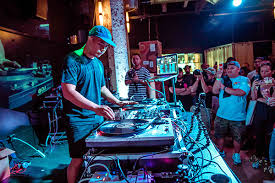 When you attend an event where there is a live DJ, you can feel confident that you are seeing something noteworthy. There is a lot of planning that goes into events and DJs make sure that the lighting is customized for that venue and that there is an impressive sound system and video system in use at all times. Primarily, this is important for corporate events and weddings, but there may also be other events where a DJ can get the crowd on their feet and having a great time. The idea behind it all is that the DJ does what it takes to ensure that every event is original, creative, and loads of fun. It requires creativity and imagination to make an event stand out. The DJs know how to make it happen.
When you attend an event where there is a live DJ, you can feel confident that you are seeing something noteworthy. There is a lot of planning that goes into events and DJs make sure that the lighting is customized for that venue and that there is an impressive sound system and video system in use at all times. Primarily, this is important for corporate events and weddings, but there may also be other events where a DJ can get the crowd on their feet and having a great time. The idea behind it all is that the DJ does what it takes to ensure that every event is original, creative, and loads of fun. It requires creativity and imagination to make an event stand out. The DJs know how to make it happen. Anyone can turn up the radio at a small backyard barbecue or a birthday party. This music is fine for most, but other events need a little more than a radio can provide. A DJ eliminates the commercials and advertisements that you will hear on the radio. At a wedding reception, they can introduce the bride and groom, turn over the mic for speeches, and announce that the father daughter dance is about to take place, but they can also play the music that you want to be played at your reception. A soundtrack that is specific to your event so that you hear only the stuff you want to hear. If they have a turntable, they can mix up the music to give it a unique sound, and they can also entertain guests in between tracks with a little humor and a lot of fun. They use lighting, sounds, and more to create an atmosphere that is purely designed to bring out the fun so that your guests will be talking about the music for many years to come.
Anyone can turn up the radio at a small backyard barbecue or a birthday party. This music is fine for most, but other events need a little more than a radio can provide. A DJ eliminates the commercials and advertisements that you will hear on the radio. At a wedding reception, they can introduce the bride and groom, turn over the mic for speeches, and announce that the father daughter dance is about to take place, but they can also play the music that you want to be played at your reception. A soundtrack that is specific to your event so that you hear only the stuff you want to hear. If they have a turntable, they can mix up the music to give it a unique sound, and they can also entertain guests in between tracks with a little humor and a lot of fun. They use lighting, sounds, and more to create an atmosphere that is purely designed to bring out the fun so that your guests will be talking about the music for many years to come.